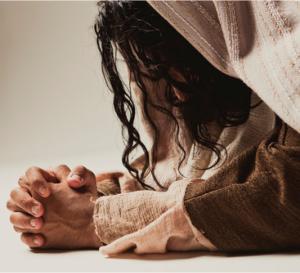What disappointment Jesus must have felt when James and John put their questions to him. These two were called at the beginning of Jesus’ ministry. They were in the inner circle of the disciples and, it’s clear from today’s gospel, they presumed they would have certain privileges and share in power when Jesus triumphed and established his worldly kingdom.
 It’s a wonder Jesus has any followers at all at this stage of Mark’s gospel. For these past Sundays, in the sequence of passages chosen from Mark, we see Jesus teaching his disciples. How hard it will be for the rich to enter the kingdom of heaven. A man may not divorce his wife. We must become childlike to accept the kingdom of God. The Son of Man will suffer and die. Then, Jesus adds, those who follow him must be willing to do the same.
It’s a wonder Jesus has any followers at all at this stage of Mark’s gospel. For these past Sundays, in the sequence of passages chosen from Mark, we see Jesus teaching his disciples. How hard it will be for the rich to enter the kingdom of heaven. A man may not divorce his wife. We must become childlike to accept the kingdom of God. The Son of Man will suffer and die. Then, Jesus adds, those who follow him must be willing to do the same.
Despite this, James and John ask "What's in it for me? What reward do you promise? Will we become powerful and famous? Can we sit at your right hand?"
Jesus doesn't play those kinds of games. He was completely honest with his disciples and He is likewise so with us. He simply says that if we choose to follow Him, we are asking to become suffering servants. We will be expected to make ourselves vulnerable and expendable. The only greatness we can expect is to be asked to make great sacrifices, to become heroes through suffering and selflessness.
Discipleship does not simply come from belonging to an elaborate, hierarchical model of "church." Being a disciple is not the same as just being part of the group. Discipleship has its own rewards - not in terms of power and possessions, but in terms of great inner peace, of fulfillment, and of the great satisfaction that comes from loving and serving unselfishly.
We are all challenged by the demands of the Gospel in the real world of our daily lives. We are all expected to be just, to be forgiving, to be servants, to be poor in spirit and to be merciful. The real question is not "What's in it for me?" but rather "Can I drink of the cup of Christ?"
The answer can only come from the depths of our love for Jesus and from the example of His own life, death and resurrection. It is coming around full-circle in our understanding of His words "whoever wishes to be great among you will be your servant; whoever wishes to be first among you will be the slave of all."
The mission of Jesus is an invitation to journey with him on a very rough and dangerous road. One must become a servant and accept the difficulties that this might entail.
Jesus' way is so contrary to the world's. More than anything else His suffering comes as a result of his choosing to identify with the disenfranchised and the outcast. He chose to reach out to sinners and welcome into his company those who were unacceptable to the religious and social elite. His life was a service to those who were usually ignored or passed over.
From the very beginning, He was on a collision course with the reigning religious and political powers. And today He tells His disciples that if they follow him and act and think as he did, then they (and we) will be on that same collision course.
We are totally in God's hands, especially in the suffering that is the consequence of following Christ. In the end, with Jesus, we can trust that God will bring life out of suffering.
And we can leave the seating arrangements at the table in the reign of God to God.





